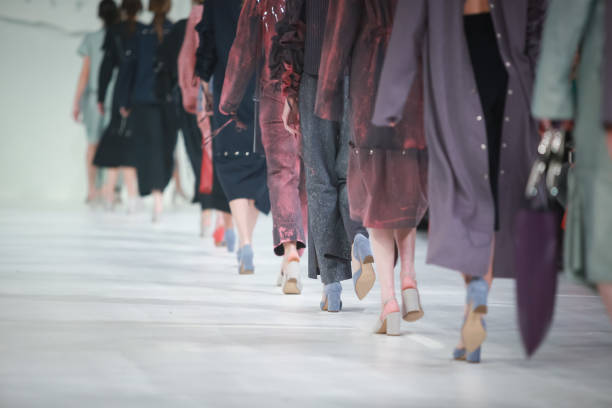Can Muslim Dress Up For Halloween ?

Halloween's
Roots
Islamic
Perspective on Festivals
The
Essence of Islamic Dressing
Costumes
Through the Islamic Lens
Conclusion:
Balancing Tradition and Modernity
Halloween,
primarily celebrated in the West, is a time for costumes, candy, and eerie fun.
However, with the growing globalization and mingling of cultures, the question
arises: Can Muslims participate in this tradition, particularly the dressing up
aspect? To understand this, we need to dive deep into both the history of
Halloween and Islamic teachings.
Halloween's
Roots
Originally known as Samhain, an ancient Celtic festival,
Halloween marked the end of the harvest season and the onset of winter. Celts
believed that on this day, the boundary between the living and the deceased
blurred, allowing spirits to return to Earth. To ward off these spirits, they
wore costumes and lit bonfires.
With time and influence from Christianity, Samhain evolved
into All Hallows’ Eve, the night before All Saints' Day. Today, it is a mix of
ancient Celtic practices, Christian traditions, and modern commercialism.
Islamic
Perspective on Festivals

Islam recognizes two main celebrations: Eid al-Fitr, which
comes at the end of Ramadan, and Eid al-Adha, which is connected to the Hajj
pilgrimage. Both are times of joy, charity, and community. Any other festival
is not inherently Islamic.
However, the mere participation in non-Islamic festivals
doesn't make it prohibited (haram). The key lies in understanding the essence
and intention behind the celebration. If a festival promotes values contrary to
Islamic teachings, it's discouraged to participate.
Costumes
and Islamic Values
The dressing up element of Halloween doesn't inherently contradicts
Islamic teachings. However, there are guidelines to consider:
- Modesty:
Costumes should conform to the Islamic principle of modesty. Both men and
women are encouraged to wear clothing that doesn't reveal the shape of
their bodies or attract undue attention.
- Avoiding
blasphemous or disrespectful costumes: It's essential to steer clear
from outfits that may mock religious figures or make light of sacred
symbols, not just from Islam but any faith.
- Avoiding
supernatural and evil themes: Since Halloween has a history tied to
spirits and the supernatural, it's essential to choose costumes that don't
glorify or make light of dark forces.
For many, costumes are a gateway
to another world – a chance to step into the shoes of someone or something
else. They're used in a plethora of events, from theatre and parties to
festivals and celebrations. But for Muslims, choosing a costume – be it for a
school event, a play, or Halloween – often comes with added layers of
consideration.
The Essence of Islamic Dressing

To understand the relationship
between costumes and Islamic values, we must first delve into the essence of
Islamic dressing principles:
- Modesty
(Haya): At the heart of Islamic attire is the concept of modesty. It's
not just about the physical covering of the body, but also a state of
mind, a manner of behavior, and a way of interaction between genders.
Clothes are just one of the expressions of this modesty.
- Not
Drawing Unnecessary Attention: Islam encourages its followers to be
humble and avoid actions that attract undue attention. In the context of
costumes, this means avoiding excessively flashy or revealing outfits.
- Not
Imitating Others Blindly: The Prophet Muhammad (peace be upon him)
advised against Muslims imitating other communities without thoughtful
consideration. This is significant when considering costumes that might be
representative of other cultures or religions.
Costumes Through the Islamic Lens
Given the above principles, let's
navigate the world of costumes:
- Representations
of Religious Figures: Costumes that depict religious figures, be it
from Islam or any other faith, should be approached with caution. Respect
for religious sentiments is crucial, and any portrayal must avoid
trivialization or mockery.
- Supernatural
and Mythical Figures: Given Halloween's association with ghosts,
witches, and the undead, it's worth noting that many conservative Muslim
scholars discourage dressing as these entities. They believe such costumes
can trivialize or make light of the unseen or evil forces.
- Cultural
Appropriation: Beyond just Islamic teachings, it's vital in today's
interconnected world to be aware of the cultural significance of certain
costumes. Donning attires from other cultures without understanding or
respect can lead to unintended offense.
- Creative
Expression: On the brighter side, costumes can be an avenue for
creative expression. For instance, dressing up as historical figures,
professionals (like astronauts or doctors), animals, or even inanimate
objects can be both fun and in line with Islamic values.
A Personal Choice with
Collective Responsibility
Ultimately, the decision to wear a
costume and its type comes down to personal choice. However, this choice is
informed by a collective understanding of faith, societal norms, and respect
for others' feelings.
Muslims, like anyone else,
appreciate the joy and excitement costumes bring, especially for children. By
ensuring their choices align with both Islamic values and broader societal
sensitivities, they can participate in the fun while maintaining their distinct
identity. The dance between tradition and expression is a delicate one, but
with understanding and respect, it can be gracefully executed.
Conclusion:
Balancing Tradition and Modernity
Muslims living in multicultural societies often grapple with
balancing their religious beliefs and societal norms. Halloween, for many, is
an event that children look forward to – it's about candy, fun costumes, and
community. For Muslims considering participation, the focus should remain on
ensuring that any involvement aligns with their values and teachings.
The choice to dress up for Halloween, like many other
decisions, is a personal one for Muslims. With respect, understanding, and an
emphasis on maintaining Islamic values, it's entirely possible to find a middle
ground that respects both religious beliefs and cultural practices.



Comments
Post a Comment